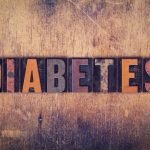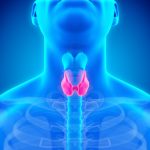Hormone Health: Support for Breast Cancer Survivors
KAYCIE GRIGEL, ND
No matter what specialty you choose, if you see women in your practice, you will see breast cancer survivors. One in every 8 women in the United States will be diagnosed with breast cancer in her lifetime.1 Fortunately, many women receive treatment and then resume everyday life. However, once active treatment ends, it can be very challenging for some women to navigate their mental and physical health. Naturopathic doctors can play a critical role in recovery by doing what we do best – listening, taking a whole-person approach, and supporting compromised systems.
From a hormone perspective, women who have undergone breast cancer treatment may experience significant changes. The steroids given during chemotherapy can strongly impact adrenal function and disrupt the hypothalamic-pituitary axis. The chemotherapeutic agents themselves can even put premenopausal women directly into menopause. Furthermore, the regimen of hormone blockers following treatment can cause a range of symptoms. It is also common for thyroid function to be impacted by chemotherapy. Therefore, it is important to consider whole endocrine symphony (not just estrogen and progesterone) when working with breast cancer survivors.
I understand it can feel daunting as a provider to try to address these kinds of hormone-related issues in breast cancer survivors. Often, patients are taking medications that directly and intentionally impact hormone balance. Because of this, we cannot use estrogen, progesterone, or testosterone to fix the endocrine disruption, and furthermore, we generally want to avoid therapies that may increase the risk of recurrence. While these are valid concerns, hormonal support for breast cancer survivors is an area of medicine where our tools as naturopathic doctors can really shine. All the things we know to do to create optimal terrain for hormone health still apply, and these can really make a difference in the recovery and quality of life for these women after cancer.
Getting Started
To make a beginning, we start with the determinants of health. We make sure our patient is sleeping well, eating 3 times per day, drinking water, and moving her body. Women need to recognize that every day is a day of active recovery. That means rest, nourishment, exercise, and stress management are all critical. The next step is to focus on interventions that can specifically support breast cancer survivors’ hormonal health. Beginning with which breast cancer treatments can affect the endocrine system, this article will also cover what symptoms to look for, what labs are most useful for diagnosis, and which naturopathic modalities and supplements can be used to best support the breast cancer survivors coming into your office.
Initial Treatment Overview
For most women diagnosed with breast cancer, the year following diagnosis is a whirlwind of choices and treatment. The terrain of their body will also have changed profoundly during this time.
Surgery
Most women will have their tumor surgically removed. If they chose a lumpectomy, generally, radiation will follow. If they chose to have a mastectomy, they may not have to go through radiation. Most women who have undergone surgery will have some changes in their mobility or discomfort due to scarring, which can be exacerbated by radiation.
Chemotherapy
Depending on tumor pathology, chemotherapy may or may not be necessary. Chemotherapy’s common side effects include neuropathy; hair loss; cardiac, kidney, or liver damage; compromised immunity; skin issues; gut issues; and fatigue.
Radiation
Radiation therapy is often used following surgery. It can help reduce the risk of local recurrence. Radiation’s common side effects include skin changes, fatigue, local scar tissue, lymphedema, neuropathy, and seroma.
Post-Treatment Medications
Finishing cancer treatment is a relief. For many women, treatment is considered “curative,” which means there is a very low chance of recurrence. However, the end of treatment can be confusing and lonely as a person starts their recovery. As a breast cancer survivor, I know the feeling of riding on the “cancer bus” for months and months, only to be dropped off on the curb in what seemed like a foreign land, left to fend for myself.
Following active treatment, women with hormone-positive cancers (most breast cancers), will be recommended an extended course of hormone-blocking medication as extra insurance against recurrence. There are 2 primary types of medication given to women with hormone-positive cancers: tamoxifen and aromatase inhibitors.
Tamoxifen
Tamoxifen is a selective estrogen receptor modulator, which means it blocks the effects of estrogen in tissue by attaching itself to the estrogen receptors in breast cells. This estrogen-blocking action helps stop the growth of any breast cancer cells that may be left in the body after treatment. The selectivity is helpful because it does not block estrogen’s impact on bones, so it does not increase a woman’s risk of osteoporosis. Tamoxifen can cause mild to severe menopausal symptoms that range from hot flashes and night sweats, to insomnia, muscle aches, and anxiety. It also increases the risk of blood clots and endometrial cancer.
Aromatase Inhibitors
Aromatase inhibitors (AIs), such as exemestane, anastrozole, and letrozole, block the function of aromatase, an enzyme that initiates the peripheral conversion of androgens to estrogen. AIs are the drugs of choice for post-menopausal women. For pre-menopausal women, AIs will often be administered with a drug such as leuprorelin, a GnRH analogue that arrests ovarian production of hormones. Aromatase inhibitors can cause menopausal symptoms such as hot flashes, night sweats, mood swings, fatigue, and depression. Additionally, AI’s can impact joints, muscles, the liver, the kidneys, and the adrenal glands.
Assessing Affected Hormonal Systems
So how can we support the women who come to us as breast cancer survivors? To review, patients may be relatively young and used to being healthy. When they appear in your office, they will have recently gone through the stress of a life-threatening diagnosis, a treatment that has likely impacted many of their organs, they may be newly and abruptly menopausal, and they will often be taking a medication that is making their menopausal symptoms worse. Between the stress, treatment, and medication, their adrenal health and thyroid function are also likely to be compromised.
To assess the endocrine system, look at reproductive hormones, androgens, adrenal parameters, and thyroid hormones. Labs to consider include:
- FSH
- TSH, FT3, FT4
- Estrogen, Total
- Estradiol
- Estrone
- Estriol
- Salivary Cortisol x 4 (or Serum Cortisol AM/PM)
- Testosterone, Free and Total
- Progesterone
I find measuring FSH to be beneficial during this time because it lets me know if changes to reproductive hormones are transient or if cancer therapy has pushed a person into menopause.
Targeted Therapies for Hormone Health
Once we understand what is happening with a woman’s hormones, we have some targeted therapeutics that are safe, effective, and potentially chemotherapeutic or otherwise preventative for breast cancer.
Diet
A small trial showed that a diet rich in fruits, vegetables, whole grains, and omega-3 fats improved fatigue and sleep in breast cancer survivors.2 For women experiencing vasomotor symptoms, a diet high in omega-3 fats can help control this symptom.3,4
Ashwagandha
This herb can be an excellent option for supporting thyroid and adrenal function. As a calming adaptogen, it can help with stress, anxiety, insomnia, and chemotherapy-induced fatigue.5,6 It can also help boost thyroid hormone production.4 Several studies have shown ashwagandha and one of its principal constituents, Withaferin A, to be preventative and therapeutic for breast cancer, both for estrogen/progesterone-positive and triple-negative tumor types.7–9
Black Cohosh
This herb has been shown to improve hormonal symptoms and have potential anticancer effects. It can improve hot flashes, night sweats, insomnia, and anxiety in breast cancer survivors, even among women who are concurrently taking tamoxifen.10–12 The safety of black cohosh relative to recurrence is good, as it has not been found to increase the risk of recurrence. It has even been shown to increase survival rates for women both taking, and not taking, tamoxifen.12–14
Soy
Though the stigma still exists, soy and its isoflavones are safe in breast cancer survivors.15 Furthermore, consumption of soy foods has been correlated with decreased breast cancer risk and increased survival in women with breast cancer.16–18 While reported benefit in menopause is mixed, studies have shown at least modest benefit for hot flashes, night sweats, anxiety, insomnia, and depression during menopause.19,20 Additionally, the isoflavone genistein can positively impact cardiovascular health parameters in menopausal women.21 Because many chemotherapeutic drugs can negatively impact the heart, adding soy to the diet (and subsequently genistein) may be of additional benefit.
Melatonin
This popular sleep hormone is good choice for breast cancer survivors who have insomnia.22 It is both effective as a treatment and in preventing relapse of disturbed sleep. Most clinical trials of melatonin on women with breast cancer have been done during active cancer treatment, but the results have consistently shown benefits for improving fatigue, depression, insomnia, and quality of life.23–25 Melatonin has the additional benefit of potentially lowering the occurrence of breast cancer in women with increased risk factors, such as overnight shift work, certain environmental exposures, and obesity.26 Finally, for women who are actively fighting cancer, several studies indicate melatonin can decrease tumor burden and improve response to chemotherapy.27–30
Bringing It All Together
Breast cancer survivors are often motivated by focusing on their inspiring goals and show incredible resilience. Nonetheless, they need support to move through the trauma of their diagnosis and nourishment to bring their systems back into a state of health. One of the most profoundly therapeutic things we can do as medical providers is to listen, understand, and legitimize the mental health component of their experiences. Beyond this, we can tailor our plans to help decrease long-term symptoms as we work to balance their endocrine organs. As with any patient, beginning with the simplest, most nourishing interventions will benefit them the most. Symptoms that need a more targeted approach will often reveal themselves with continued work, and in the meantime, you will have already begun to make a difference in the lives of these women. Good luck!
References
- Sun YS, Zhao Z, Yang ZN, et al. Risk Factors and Preventions of Breast Cancer. Int J Biol Sci. 2017;13(11):1387-1397.
- Zick SM, Colacino J, Cornellier M, et al. Fatigue reduction diet in breast cancer survivors: a pilot randomized clinical trial. Breast Cancer Res Treat. 2017;161(2):299-310.
- Rotolo O, Zinzi I, Veronese N, et al. Women in LOVe: Lacto-Ovo-Vegetarian Diet Rich in Omega-3 Improves Vasomotor Symptoms in Postmenopausal Women. An Exploratory Randomized Controlled Trial. Endocr Metab Immune Disord Drug Targets. 2019;19(8):1232-1239.
- Palacios S, Lilue M, Mejia A, Menendez C. Omega-3 versus isoflavones in the control of vasomotor symptoms in postmenopausal women. Gynecol Endocrinol. 2017;33(12):951-957.
- Yeung KS, Gubili J, Mao JJ. Herb-Drug Interactions in Cancer Care. Oncology (Williston Park). 2018;32(10):516-520.
- Biswal BM, Sulaiman SA, Ismail HC, et al. Effect of Withania somnifera (Ashwagandha) on the development of chemotherapy-induced fatigue and quality of life in breast cancer patients. Integr Cancer Ther. 2013;12(4):312-322.
- Sharma AK, Basu I, Singh S. Efficacy and Safety of Ashwagandha Root Extract in Subclinical Hypothyroid Patients: A Double-Blind, Randomized Placebo-Controlled Trial. J Altern Complement Med. 2018;24(3):243-248.
- Vashi R, Patel BM, Goyal RK. Keeping abreast about ashwagandha in breast cancer. J Ethnopharmacol. 2021;269:113759.
- Mallipeddi H, Thyagarajan A, Sahu RP. Implications of Withaferin-A for triple-negative breast cancer chemoprevention. Biomed Pharmacother. 2021;134:111124.
- Hahm ER, Kim SH, Singh KB, et al. A Comprehensive Review and Perspective on Anticancer Mechanisms of Withaferin A in Breast Cancer. Cancer Prev Res (Phila). 2020;13(9):721-734.
- Hernández Muñoz G, Pluchino S. Cimicifuga racemosa for the treatment of hot flushes in women surviving breast cancer. Maturitas. 2003;44 Suppl 1:S59-S65.
- Rostock M, Fischer J, Mumm A, et al. Black cohosh (Cimicifuga racemosa) in tamoxifen-treated breast cancer patients with climacteric complaints – a prospective observational study. Gynecol Endocrinol. 2011;27(10):844-848.
- Ruan X, Mueck AO, Beer AM, et al. Benefit-risk profile of black cohosh (isopropanolic Cimicifuga racemosa extract) with and without St John’s wort in breast cancer patients. Climacteric. 2019;22(4):339-347.
- Fritz H, Seely D, McGowan J, et al. Black cohosh and breast cancer: a systematic review. Integr Cancer Ther. 2014;13(1):12-29.
- McGrowder DA, Miller FG, Nwokocha CR, et al. Medicinal Herbs Used in Traditional Management of Breast Cancer: Mechanisms of Action. Medicines (Basel). 2020;7(8):47.
- Shu XO, Zheng Y, Cai H, et al. Soy food intake and breast cancer survival. JAMA. 2009;302(22):2437-2443.
- Varinska L, Gal P, Mojzisova G, et al. Soy and breast cancer: focus on angiogenesis. Int J Mol Sci. 2015;16(5):11728-11749.
- Wei Y, Lv J, Guo Y, et al. Soy intake and breast cancer risk: a prospective study of 300,000 Chinese women and a dose-response meta-analysis. Eur J Epidemiol. 2020;35(6):567-578.
- Crisafulli A, Marini H, Bitto A, et al. Effects of genistein on hot flushes in early postmenopausal women: a randomized, double-blind EPT- and placebo-controlled study. Menopause. 2004;11(4):400-404.
- Thangavel P, Puga-Olguín A, Rodríguez-Landa JF, Zepeda RC. Genistein as Potential Therapeutic Candidate for Menopausal Symptoms and Other Related Diseases. Molecules. 2019;24(21):3892. Published 2019 Oct 29.
- Crisafulli A, Altavilla D, Marini H, et al. Effects of the phytoestrogen genistein on cardiovascular risk factors in postmenopausal women. Menopause. 2005;12(2):186-192.
- Chen WY, Giobbie-Hurder A, Gantman K, et al. A randomized, placebo-controlled trial of melatonin on breast cancer survivors: impact on sleep, mood, and hot flashes. Breast Cancer Res Treat. 2014;145(2):381-388.
- Hansen MV, Andersen LT, Madsen MT, et al. Effect of melatonin on depressive symptoms and anxiety in patients undergoing breast cancer surgery: a randomized, double-blind, placebo-controlled trial. Breast Cancer Res Treat. 2014;145(3):683-695.
- Sedighi Pashaki A, Mohammadian K, Afshar S, et al. A Randomized, Controlled, Parallel-Group, Trial on the Effects of Melatonin on Fatigue Associated with Breast Cancer and Its Adjuvant Treatments. Integr Cancer Ther. 2021;20:1534735420988343.
- Innominato PF, Lim AS, Palesh O, et al. The effect of melatonin on sleep and quality of life in patients with advanced breast cancer. Support Care Cancer. 2016;24(3):1097-1105.
- González-González A, Mediavilla MD, Sánchez-Barceló EJ. Melatonin: A Molecule for Reducing Breast Cancer Risk. Molecules. 2018;23(2):336. Published 2018 Feb 6.
- Kubatka P, Zubor P, Busselberg D, et al. Melatonin and breast cancer: Evidences from preclinical and human studies. Crit Rev Oncol Hematol. 2018;122:133-143.
- Li Y, Li S, Zhou Y, et al. Melatonin for the prevention and treatment of cancer. Oncotarget. 2017;8(24):39896-39921.
- Amin N, Shafabakhsh R, Reiter RJ, Asemi Z. Melatonin is an appropriate candidate for breast cancer treatment: Based on known molecular mechanisms. J Cell Biochem. 2019;120(8):12208-12215.
- Maroufi NF, Ashouri N, Mortezania Z, et al. The potential therapeutic effects of melatonin on breast cancer: An invasion and metastasis inhibitor. Pathol Res Pract. 2020;216(10):153226.

Kaycie Grigel, ND, is the owner of the Golden Naturopathic Clinic, LLC, which she founded in 2006. Her practice focuses on holistic endocrinology for women, especially breast cancer survivors. She also focuses on providing education to women about their hormone health through her masterclass, “Women’s Hormone Transformation.” Dr Grigel graduated from Bastyr University in 2003 and completed a residency in Anchorage, Alaska. She lives, works, and plays with her husband, daughters, and dog in the foothills of the Rockies in Golden, Colorado.









